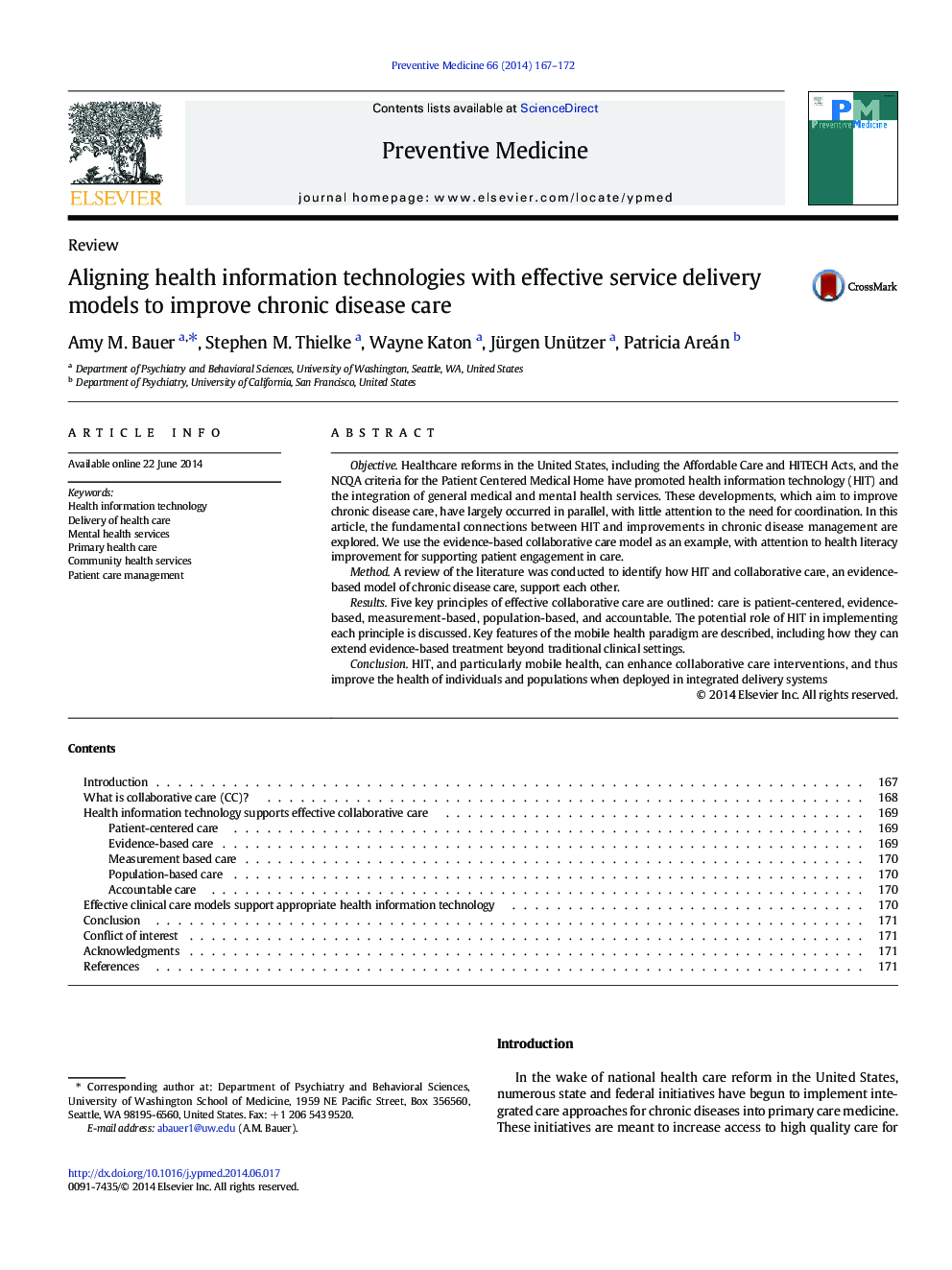| کد مقاله | کد نشریه | سال انتشار | مقاله انگلیسی | نسخه تمام متن |
|---|---|---|---|---|
| 6046998 | 1581648 | 2014 | 6 صفحه PDF | دانلود رایگان |
- US health reform is driving practice redesign and health information technology use.
- Health information capabilities should align with effective clinical care models.
- Five key principles guide collaborative care, an effective model of chronic care.
- Health information technology can support implementation of each principle.
- Leveraging technology can extend evidence-based care beyond clinical settings.
ObjectiveHealthcare reforms in the United States, including the Affordable Care and HITECH Acts, and the NCQA criteria for the Patient Centered Medical Home have promoted health information technology (HIT) and the integration of general medical and mental health services. These developments, which aim to improve chronic disease care, have largely occurred in parallel, with little attention to the need for coordination. In this article, the fundamental connections between HIT and improvements in chronic disease management are explored. We use the evidence-based collaborative care model as an example, with attention to health literacy improvement for supporting patient engagement in care.MethodA review of the literature was conducted to identify how HIT and collaborative care, an evidence-based model of chronic disease care, support each other.ResultsFive key principles of effective collaborative care are outlined: care is patient-centered, evidence-based, measurement-based, population-based, and accountable. The potential role of HIT in implementing each principle is discussed. Key features of the mobile health paradigm are described, including how they can extend evidence-based treatment beyond traditional clinical settings.ConclusionHIT, and particularly mobile health, can enhance collaborative care interventions, and thus improve the health of individuals and populations when deployed in integrated delivery systems
Journal: Preventive Medicine - Volume 66, September 2014, Pages 167-172
